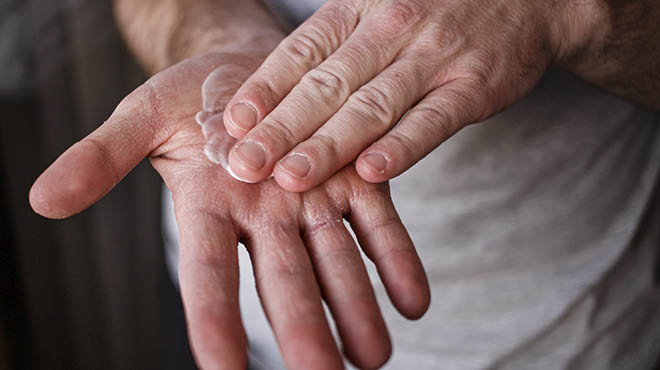Sunburn treatment: What works?

Great summer days are full of relaxation, fun and plenty of sunshine. Unfortunately, spending too much time in the sun can lead to a sunburn. Your skin may be inflamed, painful and feel hot to the touch.
Any exposed part of the body, including your lips, earlobes and scalp, can burn. The symptoms of sunburn usually appear a few hours after sun exposure.
Unfortunately, there's no fast fix to soothe a sunburn. Once you have sunburn, the damage is done. After a few days, your body will begin to heal by peeling off the damaged skin’s top layer. A bad burn can take several days to heal.
In the meantime, here are a few things you can do to treat sunburn and ease your discomfort:
Keep skin cool and moist.
Apply cold compresses, such as a towel dampened with cool water, to the affected skin several times a day. Or, take a cool bath with baking soda. Apply aloe vera lotion, moisturizing cream or a nonprescription 1% hydrocortisone cream to the affected skin several times a day. Try cooling the product in the refrigerator before applying for extra soothing comfort. Avoid products containing alcohol, which can further dry out skin.
Avoid products that contain benzocaine.
Beware of sunburn treatment products containing anesthetics, such as benzocaine. There's little evidence that these products are effective. In some cases, they can irritate the skin. Benzocaine has been linked to a rare, but serious, and sometimes deadly, condition that decreases the amount of oxygen that the blood can carry. Don't use benzocaine on children younger than age 2 without supervision from a health care professional, as this age group has been most affected. If you're an adult, never use more than the recommended dose of benzocaine, and consider talking with your health care professional.
Leave blisters alone.
If blisters form, don't break them. Doing so only slows the healing process and increases the risk of infection. If needed, lightly cover blisters with gauze.
Take an over-the-counter pain reliever.
If needed, take anti-inflammatory medication, such as aspirin or ibuprofen, according to the label instructions until redness and pain subside. Don't give children or teenagers aspirin. It may cause Reye's syndrome, a rare, but potentially fatal, disease.
Treat peeling skin gently.
Within a few days, the affected area may begin to peel. This is simply your body's way of getting rid of the top layer of damaged skin. While your skin is peeling, continue to use moisturizing cream.
Drink extra water.
This helps prevent dehydration.
Talk with your health care team if your sunburn covers a large portion of your body with blisters, sunburn is accompanied by a high fever or severe pain, or severe sunburn doesn't begin to improve within a few days.
To prevent future episodes of sunburn, apply sunscreen frequently and liberally. Select a broad-spectrum product that provides protection against ultraviolet A and ultraviolet B radiation, and has a sun protection factor of at least 15.
Be careful in the sun if you take medications that make sunburn more likely. A common example is tetracycline taken orally for acne. Finally, use common sense when outdoors. Cover up and stay in the shade as much as possible.
Trent Anderson, D.O., is a Family Medicine physician in Lake City and Plainview, Minnesota.



